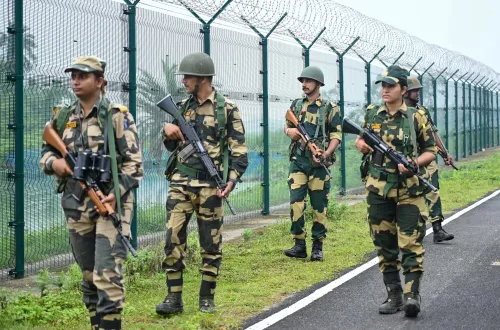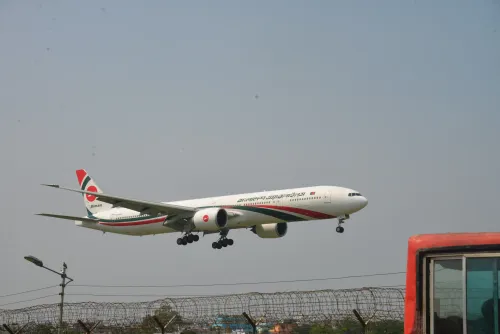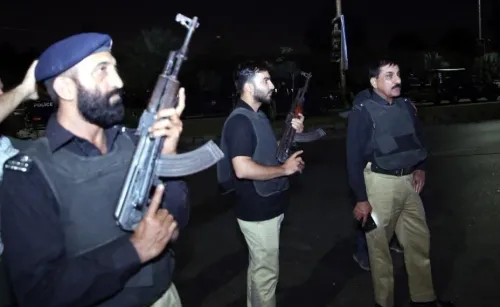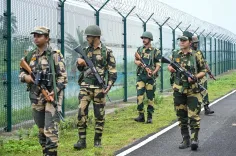Did Ukraine Target Military Airfields in Russia?
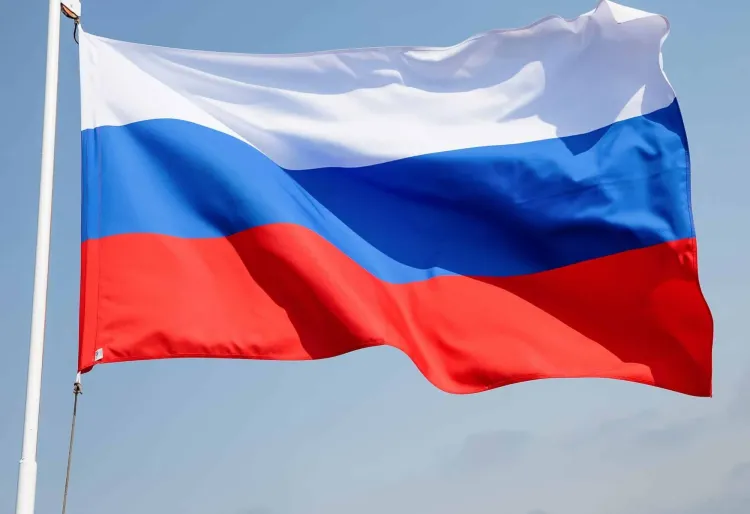
Synopsis
Key Takeaways
- Drone strikes targeted military airfields across several regions in Russia.
- Russia reported some material damage but claimed successful repulsion of the attacks.
- The attacks were part of a large-scale operation overseen by President Volodymyr Zelensky.
- No casualties have been reported in connection with the drone strikes.
- The timing of the attacks raises questions about peace negotiations.
Moscow, June 1 (NationPress) On Sunday, Russia confirmed that its military airfields were subjected to a series of kamikaze drone strikes launched by Ukraine. The Russian Defence Ministry asserted that although these terrorist attacks were repelled, some material damage occurred.
The Defence Ministry reported that military airfields across various regions in Russia were attacked during these drone strikes, as cited by RT.
Most of the assaults were successfully countered, although several led to material damage, the ministry noted.
Specifically, airfields were targeted in the Murmansk Region in the north, as well as in the Ivanovo and Ryazan regions of central Russia, in addition to the Irkutsk Region in Siberia and the Amur Region in the Far East, according to the ministry.
All assaults utilized first-person view (FPV) kamikaze drones, with some being launched from locations near the airfields, the report indicated.
In a post on Telegram, the Defence Ministry labeled the attacks as a terrorist action carried out by Ukraine in the Murmansk, Irkutsk, Ivanovo, Ryazan, and Amur regions.
"As a result of launching FPV drones from areas in close proximity to airfields, several pieces of aviation equipment caught fire," the ministry stated, adding that the fires have since been extinguished.
Some individuals implicated in these attacks have been apprehended, though the ministry did not disclose the number or identities of those arrested.
In the Ivanovo, Ryazan, and Amur regions, the attacks were countered without any damage or casualties reported, according to the ministry. However, in the Murmansk and Irkutsk regions, the strikes resulted in some aircraft fires, although no casualties have been reported, based on the ministry's data, as stated by RT.
Previously, Ukraine's security service, the SBU, claimed: "Enemy strategic bombers are burning en masse in Russia."
Ukraine is undertaking a large-scale special operation aimed at demolishing enemy bomber aircraft, as stated by the SBU. BBC sources reported that this operation, codenamed Spider's Web, took over a year to prepare and was personally overseen by President Volodymyr Zelensky.
According to reports, these airbases shelter critical Russian aviation assets, including strategic bombers like the TU-95s, long-range supersonic bombers TU-22M3s, and early warning and control aircraft A-50.
This attack occurred just before the next round of peace negotiations between the two nations scheduled in Istanbul on Monday. Although both sides claim that their respective delegations have departed for talks, the ramifications of this latest attack, perceived as a significant escalation, on the negotiations remain uncertain. Furthermore, this airfield assault transpired mere hours after two trains derailed in two Russian regions, resulting in at least seven fatalities and numerous injuries. Russian authorities have attributed both incidents to sabotage.


